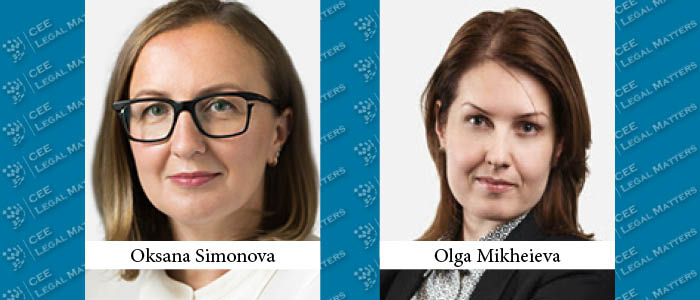At the end of March, the Antimonopoly Committee of Ukraine (the "AMC") published its Annual Report for 2022 (the "Report").
In brief
The full-scale russian invasion caused significant damage to Ukraine's economy. Thus, in 2022, the AMC focused on markets that are strategically important for the country, including the markets for: (i) electricity, (ii) natural gas, (iii) light oil products, (iv) housing and communal services, (v) construction materials (i.e., cement), (vi) medicines, (vii) real estate, (viii) information technologies, (ix) retail, and (x) other industry sectors.
Key takeaways
As usual, the Report contains examples of the previous year's most prominent cases and emphasizes the upcoming year's priorities. For this alert, we picked some trends and highlights from the Report in the following categories:
- merger clearances;
- concerted actions approvals;
- competition law infringements;
- fines and recommendations;
- priorities for 2023.
In more detail
I. Merger clearances
In 2022, the AMC received 530 applications for concentration approval, which is 349 applications fewer than last year. The main highlights are:
- Approval rate: In 379 cases (71.5%), the AMC granted approval.
- Phase I rate: 93.7% of applications were considered in Phrase I.
- Fast-track review rate: 6.3% of the applications were considered under the fast-track review procedure (26.7% less compared to 2021 figures).
- Phase II remedies rate: Out of the nine concentrations reviewed by the AMC in 2022, six (67%) were approved subject to commitments. The review of the other three applications was closed without a decision on the merits.
Most approvals were granted in the markets for: (i) forestry, processing and sale of wood (39.6%), (ii) land management and real estate services (14.5%), (iii) agro-industrial complex (9.5%), (iv) industry (7.7%), and (v) fuel and energy (6.9%).
II. Concerted actions approvals
In 2022, the AMC reviewed 41 applications for concerted actions (compared to 50 applications in 2021) and approved 32 of them (78%).
Most approvals were granted in the following markets: (i) land management and real estate services (18.8%), (ii) industry (18.8%), (iii) healthcare, medicines and medical devices (15.6%), (iv) agro-industrial complex (12.5%), and (v) fuel and energy (6.3%).
III. Competition law infringements
In 2022, the AMC issued decisions and recommendations with regard to 611 competition law infringement cases. Anticompetitive concerted actions constituted 46.6% of all infringements that took place in 2022, with procurement result distortions accounting for 96.7% of all concerted actions.
The biggest amount of terminated competition law infringements related to the following markets: (i) housing and communal services (19%), (ii) construction and construction materials (16.7%), (iii) agro-industrial complex (11.5%), and (iv) fuel and energy (10%).
The vast majority of the AMC's decisions on unfair competition consisted of consumer misrepresentation to gain an advantage over a competitor. This is mainly because (i) this type of infringement covers pieces of information placed on the products' labeling or advertising, and (ii) the AMC has the power to initiate proceedings in respect of such infringement on its own initiative.
IV. Fines and recommendations
In the previous year, the AMC adopted a significantly fewer number of decisions regarding competition law infringements (517 decisions in 2022 compared to 1,344 decisions in 2021). Therefore, the total amount of fines imposed was only UAH 557.91 million (compared to UAH 7.2372 million in 2021).
The fines imposed in 2022 consisted of fines for anticompetitive concerted actions (66.7%), unfair competition (15.3%), information infringements (13.6%), abuse of dominant position (2.4%), and concentration and concerted actions without obtaining the AMC's prior approval (2%).
In 2022, the AMC only issued 10 recommendations aimed at strengthening competition (97.9% less than in 2021).
It should be noted that the deterioration of the security situation, caused by the full-scale russian invasion in Ukraine, had a negative impact on the AMC's work, cooperation with other authorities and ability to interact with the affected persons. In addition, the proactivity of businesses decreased significantly, which affected the number of applications and recommendations.
V. Priorities for 2023
In its Report, the AMC determined the following priorities for 2023:
- advocating and/or detecting and terminating violations of competition legislation in the market for banking and financial services;
- advocating and/or detecting and terminating violations of competition legislation in the energy market (electricity and natural gas);
- advocating and/or detecting and terminating violations of competition legislation in the market for light petroleum products(fuel);
- detecting and terminating violations of competition legislation of state property privatization through competitive procedures;
- conducting research on the competition status in the market for construction materials;
- providing regulatory and legal support and advocacy of the system for monitoring and controlling state aid granted to legal entities;
- strengthening cooperation with competitive authorities of the EU member states.
By Oksana Simonova, Partner, Olga Mikheieva ,Counsel, Baker McKenzie




